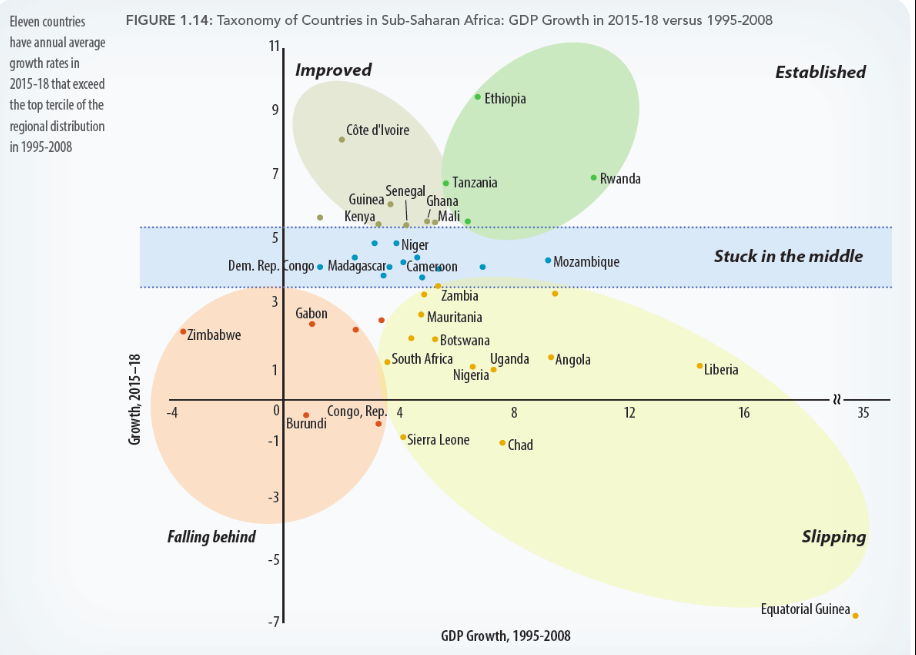The International Monetary Fund (IMF) Annual Spring Meetings took place at the World Bank Group Headquarters in Washington D.C. last month, and included in their ‘State of Africa’ report, assessing the current trends across the continent.
The main focus revolved around leveraging innovations in the agriculture and energy sectors to cultivate human development and spur economic growth.

Overall, the report was given with a sense of cautious optimism for Africa. East African countries continued to perform well, and of particular note was the ‘positive economic transitions’ in the South African Development Community, in Angola and South Africa.
As two of Sub-Saharan Africa’s power economies, their fate is closely aligned to the continent as a whole.
Angola has also recent been given greater endorsement from the IMF. During visit last month, IMF Director, Tao Zhang, said:
The Government has taken important steps toward improving governance and restoring macroeconomic stability. The IMF stands ready to help Angola address its economic challenges by supporting a comprehensive policy package to improve governance, accelerate the diversification of the economy, and promote inclusive growth while restoring macroeconomic stability and safeguarding financial stability.
South Africa is also now following an upward trend, slowing inflation and improving business confidence to help sustain the ongoing recovery in domestic demand.
On the back of firmer domestic demand, stronger commodity prices and stronger than expected improvement in global activity, the prospects for 2018 are finally looking good.
Growth across Sub-Saharan economies in 2018
A large majority of Sub-Saharan economies are expected to see improved growth performance in the coming year.
The global and regional environment remains challenging, with food related commodity prices weak, political uncertainty and regional security tension still hovering over the continent and prospects of weaker global demand as China starts to address its growing credit bubble.
The launch of the Tripartite Free Trade Area and the Continental Free Trade Area this year have the potential to further unlock regional trade and, if successful, these changes are bound to strengthen Africa’s autonomy by creating and diversifying trade within the continent.
The path to a truly self-sustaining and self-reliant Africa has been opened, yet its success will depend not on rhetoric but on firm commitments.
Picture sourced from the World Bank Report Africa’s Pulse: Available here.
